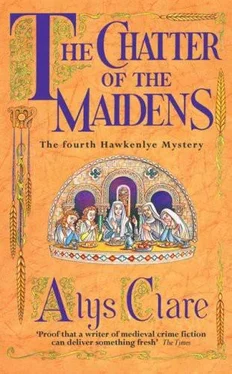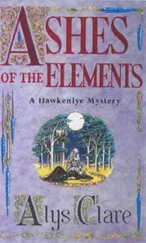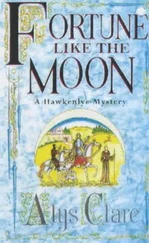Alys Clare - The Chatter of the Maidens
Здесь есть возможность читать онлайн «Alys Clare - The Chatter of the Maidens» весь текст электронной книги совершенно бесплатно (целиком полную версию без сокращений). В некоторых случаях можно слушать аудио, скачать через торрент в формате fb2 и присутствует краткое содержание. Год выпуска: 2003, Издательство: Hachette Littlehampton, Жанр: Исторический детектив, на английском языке. Описание произведения, (предисловие) а так же отзывы посетителей доступны на портале библиотеки ЛибКат.
- Название:The Chatter of the Maidens
- Автор:
- Издательство:Hachette Littlehampton
- Жанр:
- Год:2003
- ISBN:нет данных
- Рейтинг книги:3 / 5. Голосов: 1
-
Избранное:Добавить в избранное
- Отзывы:
-
Ваша оценка:
- 60
- 1
- 2
- 3
- 4
- 5
The Chatter of the Maidens: краткое содержание, описание и аннотация
Предлагаем к чтению аннотацию, описание, краткое содержание или предисловие (зависит от того, что написал сам автор книги «The Chatter of the Maidens»). Если вы не нашли необходимую информацию о книге — напишите в комментариях, мы постараемся отыскать её.
The Chatter of the Maidens — читать онлайн бесплатно полную книгу (весь текст) целиком
Ниже представлен текст книги, разбитый по страницам. Система сохранения места последней прочитанной страницы, позволяет с удобством читать онлайн бесплатно книгу «The Chatter of the Maidens», без необходимости каждый раз заново искать на чём Вы остановились. Поставьте закладку, и сможете в любой момент перейти на страницу, на которой закончили чтение.
Интервал:
Закладка:
‘Could we not stay there, in those places?’
The blush was deepening. Brother Augustine hesitated, then, apparently deciding that this awkward conversation would come to an end more quickly if he steeled himself to be forthright, said, ‘Abbess, it’s different now. Then, we used to pay our way with our skills. A chair mended, a charm against warts or a cure for an aching back, a good tale or two that nobody had heard before, a song and a dance. That sort of thing.’
Intrigued, she ignored his obvious diffidence and said, ‘What used you to do, Brother Augustine?’
Looking as if he wished he were anywhere but there, he said, ‘I sang.’
‘And could you not sing for your supper now?’
Brother Augustine’s embarrassment made him lower his head. Then, looking up and catching her eye, suddenly he grinned. ‘Not that sort of song I couldn’t, Abbess.’ The grin widened. ‘Not in this company, and wearing the habit of a lay brother.’
‘Oh!’ Of course! Why hadn’t she worked that out for herself! ‘I see, Brother Augustine.’
No more had been said on the subject of their nightly accommodation.
But as Augustine’s quite natural diffidence in the elevated company of his Abbess had abated, a great deal was said on many other subjects. Knowing that Saul would understand, Helewise had spent much of the first couple of days of the journey talking to the young man, trying to draw him out of his reticence.
Remembering what Saul had told her of the boy’s devotion to his mother, she had first asked Augustine about his family. The question uppermost in her mind was did he miss them, and the itinerant way of life; after one or two preliminary pleasantries, she asked him.
‘I do miss them, my mother and my father and my brothers and sisters,’ Augustine replied after a moment’s consideration. ‘And I can’t say as sometimes I don’t hanker for the excitement of being on the road — you know, new sights every day, the pleasure of going back a year later to some favourite place and having the same warm welcome.’ He paused. ‘But I know Ma’s well now, and she loves the life she leads. She understood when I explained to her about the Lord, how I heard Him calling to me, and she gave me her blessing over entering Hawkenlye.’
Helewise, riding beside him and watching him closely, noticed that his gaze had shifted, and that he was contemplating something distant. Not wishing to intrude on his thoughts, she said nothing.
After a while, he turned to her and, with a disarming grin, said, ‘Sorry, Abbess. I’ve forgotten what it was you asked.’
Smiling in return, she said, ‘Don’t worry, Augustine. I think you have already answered me.’
But her curiosity was far from satisfied. As they rode on and the long days passed, she was increasingly impressed by Augustine’s ability to find the way; how did he manage it? Had all those years as a traveller given him some enhanced sense of direction so that, always knowing which way was north, the rest followed automatically? And how did he manage always to find provisions when they needed them and pure water when their gourds were nearly empty?
She asked him, but he seemed not to understand his abilities, nor even to believe they were anything out of the ordinary. When pressed, he merely shrugged and said, ‘We could all do it, all of us. I suppose we sort of pick it up from each other.’
In addition, as the lad’s confidence grew, he began to entertain his two companions with tales from an apparently inexhaustible supply; here the legend of a giant whose footfall made a pond; there a chilling story of a black dog whose appearance heralded the spectral apparition of his headless master; here a poignant tale of a little boy slaughtered by brigands who, despite having had his throat cut, managed to sweetly sing the ‘ Ave Maria ’ until his pathetic little body was discovered.
Augustine was, Helewise noted, a fine storyteller; when he had finished the tale about the little boy, she observed Saul wiping a surreptitious tear from his eye.
The weather stayed fine; there was always enough to eat and somewhere to shelter for the night. Helewise, riding through the beauties of the countryside in April, wondered if she had ever felt more content. She had to keep reminding herself of her serious purpose; at times, it was very easy to forget all about it.
Now, leaving Barnwell with the joyful sound of the Augustinian canons’ morning worship still ringing in her ears, Helewise looked around her eagerly at the changing landscape. First, we had the green, wooded hills of Kent, she reflected; few surprises there, she had spent most of her life in Kent and, in her youth and during her married life, had travelled her home county extensively. Then into Essex, where the great tracts of forest of Epping and Waltham had thinned as they went north and, for many miles, had travelled on what, according to Brother Augustine, was an ancient Roman road. Traffic had been heavier then; they had shared the track with carters, parties of merchants, and the occasional pilgrim band.
Augustine had told the Abbess that, once they reached the Fens, the landscape would change. His brief words of preparation had been enlarged on alarmingly by one of the monks at Barnwell who, on hearing that they were bound for Ely, had paled, shaken his head worriedly and tried to dissuade them.
‘But you’ll have to cross the Fens!’ he exclaimed. ‘And ’tis a terrible place! Black, oozing mud, dark, dangerous waters hidden under the mists, and there’s no folk living there but have webbed feet and the ague. And they do say there’s monsters and demons, living on the islands!’
Monsters and demons, she had thought, smiling at the man’s superstitious dread. Dangerous waters, indeed. But, as the day’s ride continued and they progressed northwards, she realised that the old man might have been right after all. .
The sodden soil, for one thing, was indeed so dark as to appear black. And there was water everywhere, perilously concealed, just as the monk had said, by sudden curls and swirls of mists that seemed to come out of nowhere and disappear just as mysteriously. Sometimes there would be a small ‘pop!’ and then a sudden foul smell, as if some unimaginable subterranean thing had briefly put its dreadful head above the surface and exhaled a mouthful of filthy breath.
There were few signs of human habitation. They passed one or two rough-looking settlements on isolated islands, and from one a large dog came running, barking ferociously until stopped with a hard cuff from a man dressed in what looked like a sack. Augustine waved and called out a friendly ‘Good day!’ but the man responded with a shake of his large fist.
The track meandered its way around the wetlands, but sometimes, when the sheet of black water seemed to extend endlessly on either side, they would have to proceed along a raised causeway.
Trying to calm her apprehension, Helewise called out to Augustine, ‘Who built these raised tracks? Do you know, Augustine?’
He turned in the saddle and said, ‘No, Abbess. They do say they were always here.’
Always here. A shiver of atavistic fear ran up the Abbess’s spine. Perhaps they were built by demons and monsters. .
From behind her, Saul said sensibly, ‘Maybe it were the same folk that built the old roads. Eh, Gus?’
‘Maybe,’ he called back. Then, when the causeway had carried them on to the next stretch of wider track, he added, ‘My grandfather found a sword, once, not far from here. Somebody told him to put it back where he found it, because it was an offering. To the spirits of the place.’
‘An offering,’ Helewise breathed. I should not be listening to this pagan talk, her conscience told her firmly. Only she didn’t seem to be listening. ‘Did he put it back?’
Читать дальшеИнтервал:
Закладка:
Похожие книги на «The Chatter of the Maidens»
Представляем Вашему вниманию похожие книги на «The Chatter of the Maidens» списком для выбора. Мы отобрали схожую по названию и смыслу литературу в надежде предоставить читателям больше вариантов отыскать новые, интересные, ещё непрочитанные произведения.
Обсуждение, отзывы о книге «The Chatter of the Maidens» и просто собственные мнения читателей. Оставьте ваши комментарии, напишите, что Вы думаете о произведении, его смысле или главных героях. Укажите что конкретно понравилось, а что нет, и почему Вы так считаете.












